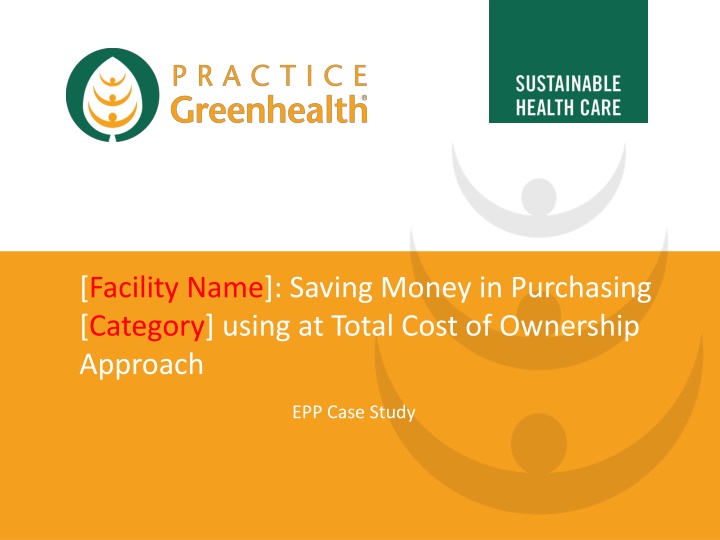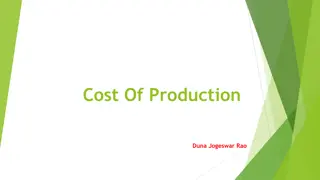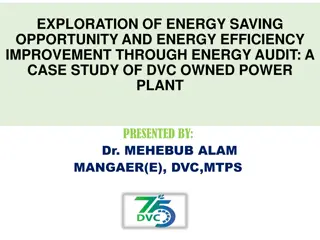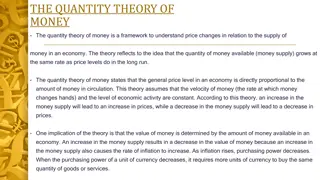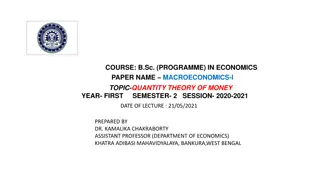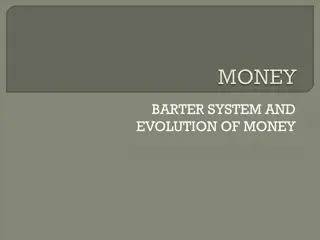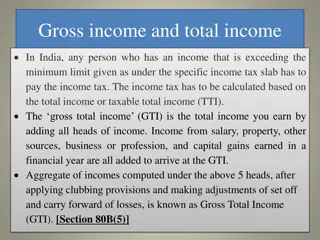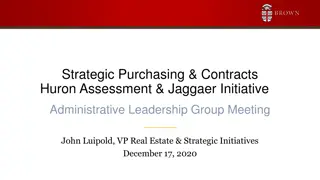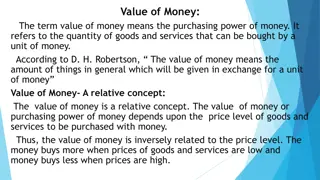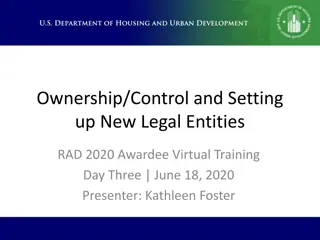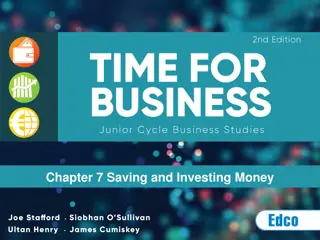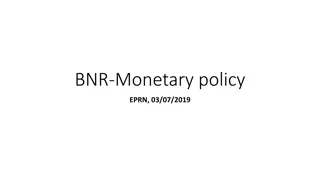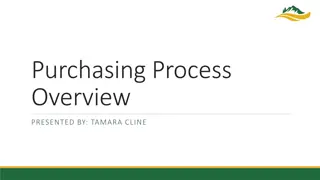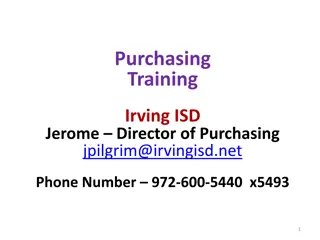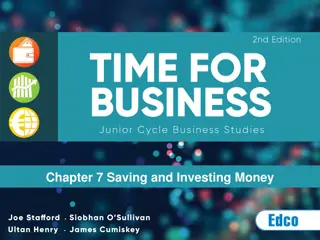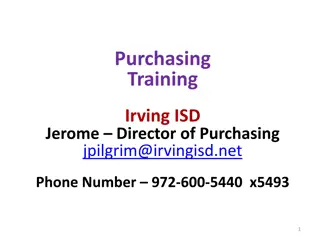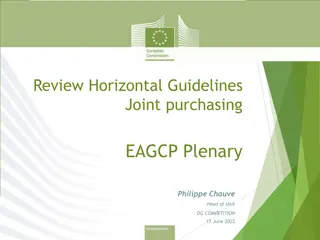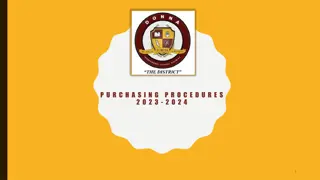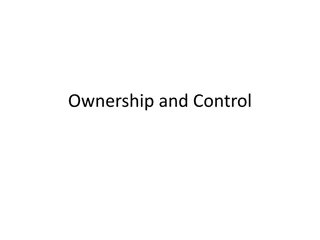Saving Money in Purchasing: Total Cost of Ownership Approach Case Study
Utilize a case study to explore how a Total Cost of Ownership approach can help save money in purchasing decisions. Assessing products like CFL and LED light fixtures, evaluating cost elements, and summarizing results to showcase benefits.
Download Presentation

Please find below an Image/Link to download the presentation.
The content on the website is provided AS IS for your information and personal use only. It may not be sold, licensed, or shared on other websites without obtaining consent from the author.If you encounter any issues during the download, it is possible that the publisher has removed the file from their server.
You are allowed to download the files provided on this website for personal or commercial use, subject to the condition that they are used lawfully. All files are the property of their respective owners.
The content on the website is provided AS IS for your information and personal use only. It may not be sold, licensed, or shared on other websites without obtaining consent from the author.
E N D
Presentation Transcript
[Facility Name]: Saving Money in Purchasing [Category] using at Total Cost of Ownership Approach EPP Case Study
EPP Project [Category] [Facility] assessed [Product A, such as CFL light fixtures] and [Product B, such as LED light fixtures]. [Why these products were chosen] [What is the goal desired]
Getting Leadership Support [ xx ] Key Participants [VP of Supply Chain]
[Category]: Products Evaluated General Information Product A [Traditional Freezer] Product B [Energy efficient Freezer] Product C [Traditional Freezer 2] Product D [Energy Efficient Freezer 2] Option: Insert category picture Product Description Expected Product Life Product Weight Annual Operating Hours (or other Product Description Factor) Product Power (or other Product Description Factor) Electricity Rate (or other Factor)
[Category]: Cost Elements Evaluated Acquistion Ex. Purchase price Ex. Delivery Use Ex. Labor Ex. Cleaning Disposal Ex. waste cost from packaging Ex. waste cost from consumables
[Category]: Results Summary results statement [Insert chart from TCO results]
Tipping the Scale in Our Favor [Category]: Results [Energy Efficient Brand] [Traditional Brand] [Example Cost]- $ Insert picture that depicts category and any cost elements in use [Example Cost] -$ [HVAC]- $ [HVAC]- $ [Power]- $ [Power]- $
Conclusion: Benefits of Using a TCO Approach
For more information Name Title Organization Email
